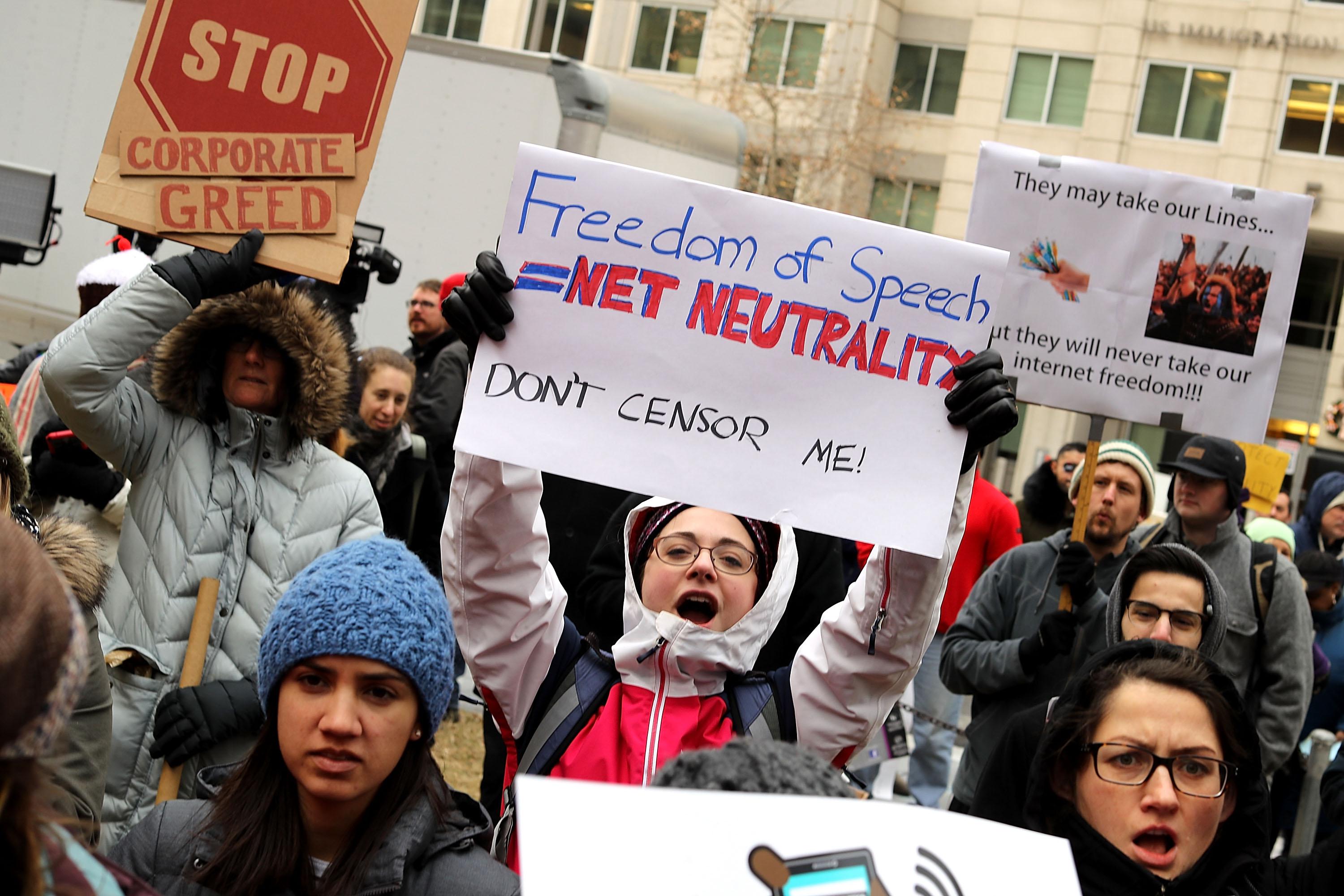After lots of controversy and back-and-forth, it is now almost official. Net neutrality protections are set to become a thing of the past Monday. The repeal of the rules known as net neutrality, which essentially prohibit internet service providers from giving preferential treatment to certain websites, is officially set to take effect on Monday. Lawmakers and state officials are working to try to reinstate the rules shortly so the change may not be long-lived but that doesn’t change the fact that starting June 11, internet service providers will be much freer to block, speed up or slow down access to certain content.
The Federal Communications Commission said last month that it received the final bit of approval from the Office of Management and Budget that it needed to implement the change. “Now, on June 11, these unnecessary and harmful internet regulations will be repealed and the bipartisan, light-touch approach that served the online world well for nearly 20 years will be restored,” FCC chairman Ajit Pai said at the time.
Online protests are expected on Monday to call attention to the issue as activists focus on lobbying the House of Representatives, where lawmakers still haven’t taken up a measure that would restore net neutrality. The measure passed the Senate on May 16 but the House is still around 50 votes short. Democrats have been pushing for a vote to get everyone’s position on the record, thinking it could become a key issue in midterm elections.
Even as many talk about the issue in apocalyptic terms, most acknowledge that little is likely to change right away partly because the issue is mired in legal challenges and controversy. “Nothing will change the next day,” Kevin Werbach, an associate professor of legal studies at Wharton and former FCC adviser, told CNN. “Companies are not going to take any major action to change their policies until it’s resolved.”
Telecom companies also are unlikely to take quick action because they “are smarter than that,” notes ACLU’s Chad Marlow. Internet service providers don’t want to scare anyone so they’ll be patient. “Their wisest course of action will be to eliminate net neutrality like a slow drip over time in the hope that consumers won’t notice and will stop caring,” Marlow writes. He goes on to explain:
Once June 11 comes and goes, we should expect the ISPs will do little to nothing in response. Then, after some time has passed, they will point to their inaction as proof we were wrong to distrust them and their promises not to violate net neutrality in the absence of a federal mandate. And guess what will happen next? Drip. Drip. Drip. And before we know it, a flood will have washed away the free and open internet we all rely on.
For now, some states have decided to take matters into their own hands and are implementing their own net neutrality protections. In New York and Montana, for example, governors signed executive orders to keep net neutrality rules while others, including Oregon and Washington, have passed state laws preventing internet service providers from giving priority to certain content.
